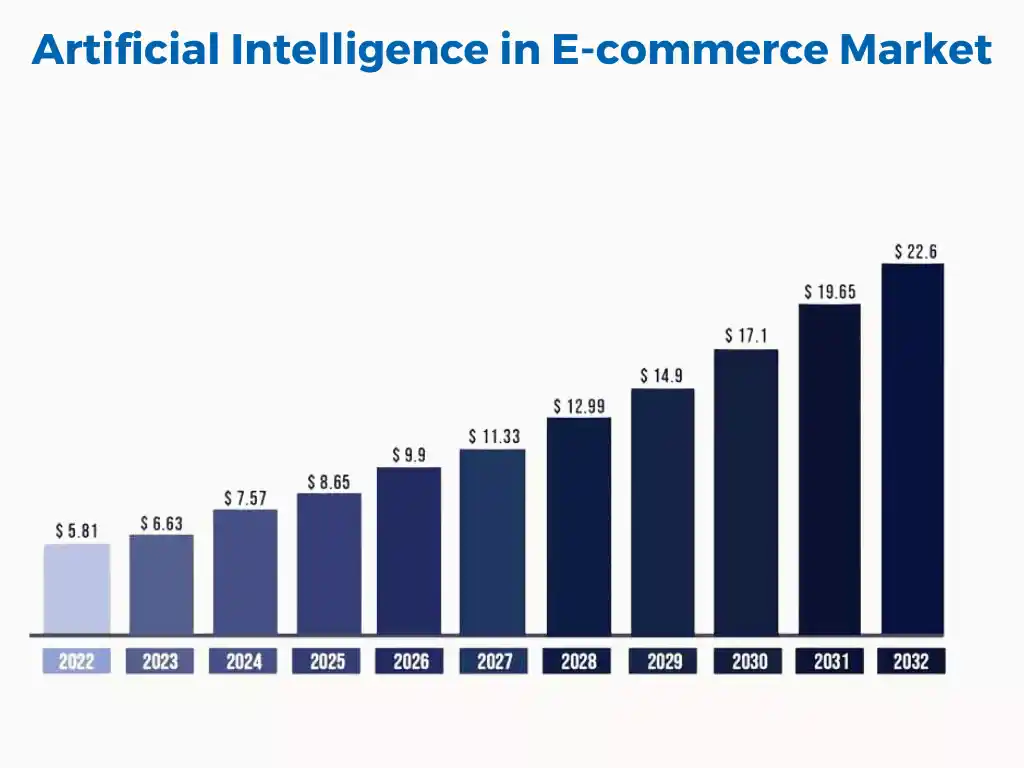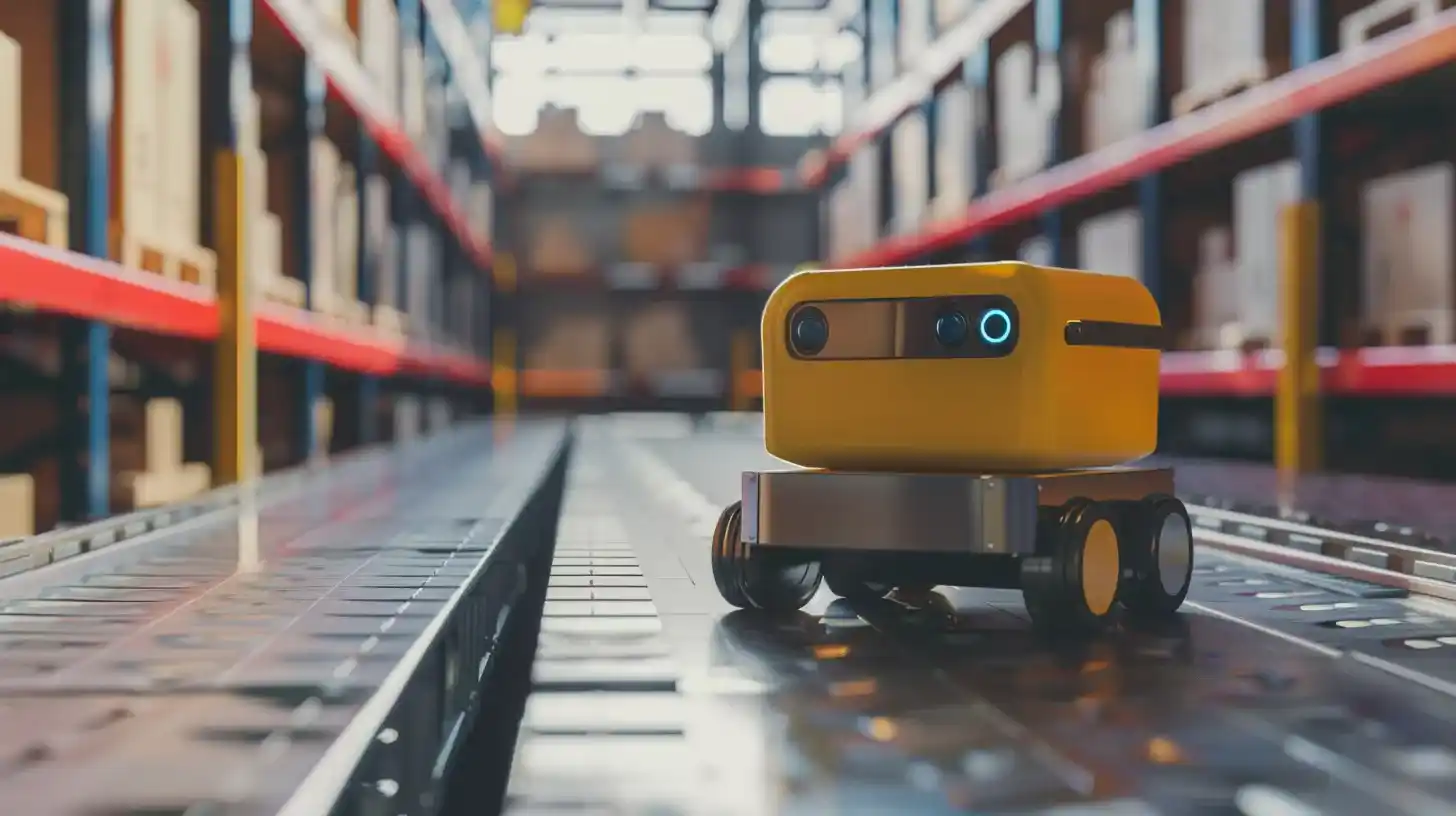Table of Contents
One of the most significant innovations reshaping this sector is Artificial Intelligence (AI). AI in eCommerce delivery has become a game-changer, completely transforming how goods are delivered to customers. From predicting customer preferences to automating operations through route planning solutions, AI has introduced a new era of productivity and customer-centricity.
Route planning software like Route4Me and others have streamlined delivery processes AI in eCommerce, utilizing AI algorithms to ensure that packages are delivered through cost-effective routes. Join us as we dive into the world of AI-powered eCommerce delivery and its profound impact on businesses and consumers alike.
Current State of ECommerce Delivery
In the constantly evolving AI in eCommerce delivery space, conventional delivery techniques are being scrutinized. Traditional methods involve multiple steps, from order placement to dispatch and final delivery. These methods face challenges such as last-mile delivery intricacies, congested metropolitan environments, and increased customer expectations. Clients now expect quick deliveries and flexibility in delivery options, such as same-day or even within-hours delivery.
This scenario sets the stage for exploring how AI-powered solutions are redefining the delivery landscape.
What is AI in ECommerce Delivery?
Artificial Intelligence (AI) is the driving force behind the transformation of AI in eCommerce delivery. AI utilizes advanced algorithms and machine learning to automate different stages of eCommerce delivery, contributing to improved operational efficiency and enhanced customer experiences. AI in eCommerce delivery routes by considering real-time traffic information, atmospheric conditions, and customer preferences. It also empowers predictive analytics to forecast demand and inventory requirements accurately, reducing the risk of stockouts or overloading.
Additionally, AI customizes client interactions by offering delivery ETAs and proposing tailored suggestions. This combination of innovations enables eCommerce companies to meet the needs of modern buyers, delivering packages and exceptional experiences.

AI in Ecommerce Market Size to Reach USD 22.60 Bn by 2032
The global artificial intelligence in e-commerce market size was reached at USD 5.81 billion in 2022 and it is projected to hit around USD 22.60 billion by 2032, registering a CAGR of 14.60% during the forecast period 2023 to 2032.
AI-Powered Solutions in ECommerce Delivery
Artificial Intelligence has introduced an era of innovation, revolutionizing how products are dispatched, transported, and received.
Route Optimization
AI algorithms are at the forefront of optimizing delivery routes for phenomenal efficiency. They consider real-time factors such as traffic conditions, weather forecasts, and even bundle size to map the most time- and cost-effective routes. Companies like Amazon have embraced AI-driven route optimization, enabling them to shorten delivery times and reduce fuel consumption, ultimately saving both time and resources.
Predictive Analytics
AI’s prowess in predictive analytics extends to forecasting customer behavior and delivery patterns. By analyzing vast datasets, AI systems can predict when and what customers are likely to order. These insights support demand forecasting, allowing companies to stock inventory more accurately, reduce waste, and meet surges in demand seamlessly. Amazon’s anticipatory shipping model exemplifies AI’s predictive capabilities, shipping items to regional hubs before customers even place orders.
Warehouse Automation
AI-driven robots and automation have transformed warehouse operations. These robots navigate distribution centers, locate items, and transport them to human workers for packing and delivery. Companies like Alibaba’s Cainiao Smart Logistics Network employ over 100,000 AI-powered robots in their fulfillment centers, boosting productivity, reducing errors, and minimizing the burden on human labor.
Personalized Customer Experiences
AI enhances both operational efficiency and customer experience. Advanced algorithms provide customized product recommendations based on customer preferences, past purchases, and browsing history. Real-time delivery estimates keep customers informed, while the level of personalization increases customer satisfaction and conversion rates, making AI an essential tool for AI in eCommerce delivery.

Benefits of AI in ECommerce Delivery
AI is reshaping eCommerce delivery with numerous benefits:
Enhanced Operational Efficiency
AI-driven algorithms in eCommerce ensure businesses achieve operational efficiency with minimal expenses. By following optimized routes, businesses can save on operational costs and contribute to a more economical and environmentally responsible delivery ecosystem.
To further enhance the operational efficiency discussed, incorporating a robust courier software solution can play a pivotal role in managing deliveries effectively. With rapid advancements in AI-powered route optimization and predictive analytics, businesses are poised to transition to more efficient delivery models.
Flexible Delivery Options
AI-driven solutions enable businesses to offer flexible delivery options such as same-day and within-hours delivery services. This flexibility helps meet evolving customer preferences, guaranteeing a positive customer experience.
Personalized Experiences
Offering custom printed boxes for packaging further personalizes the experience, ensuring that the unboxing process feels just as special and tailored to the customer’s preferences. This level of customization and transparency increases customer satisfaction rates, as customers feel more valued and informed throughout the purchase journey.
Inventory Optimization
Predictive analytics powered by AI in eCommerce delivery businesses optimize their stock levels. By analyzing demand patterns and historical data, AI algorithms can predict accurate inventory requirements, helping businesses avoid overstocking and stockouts, and ultimately meeting customer demands efficiently.
Sustainable Practices
Optimizing AI in eCommerce delivery routes using AI helps manage resources more efficiently. Businesses can save on operational costs and contribute to a more sustainable delivery ecosystem by following optimized routes, reducing fuel consumption, and embracing eco-friendly packaging materials.
Future Trends in AI and ECommerce Delivery
The future of eCommerce delivery holds exciting possibilities as technology continues to evolve. Several emerging trends are shaping the future of AI in eCommerce delivery:
Drone and Autonomous Delivery Vehicles
As technology advances, regulations governing drones and autonomous vehicles are expected to evolve. This development is poised to enable more precise and faster deliveries, especially in urban areas with heavy traffic. Drones and autonomous vehicles promise accuracy and speed in deliveries, reducing overall transit times and boosting customer loyalty.
AI-Powered Customer Chatbots
AI-driven customer chatbots are revolutionizing client interactions in eCommerce. These chatbots are now advanced to provide customized product suggestions, and enhance the customer experience by handling requests and tracking parcel statuses in real time. This integration of AI into customer service offers time-saving and efficient interactions for eCommerce businesses and their clients.
Predictive Maintenance
AI-powered predictive maintenance is becoming crucial for eCommerce deliveries. By utilizing data about vehicle usage patterns, AI monitors the health and performance of delivery vehicles, predicting maintenance requirements. This approach ensures vehicles remain in optimal condition, reducing the likelihood of unexpected breakdowns or service disruptions and improving delivery reliability and efficiency.
Sustainability Initiatives
Sustainability is a rising concern in the eCommerce industry, and AI plays a critical role in addressing this issue. Online businesses are incorporating sustainable practices, such as optimizing delivery routes to reduce fuel consumption and using eco-friendly packaging materials. AI-powered route optimization helps minimize the environmental impact of delivery operations, aligning with customer preferences for eco-conscious solutions.
Blockchain for Transparency
Blockchain technology enhances transparency in eCommerce delivery by providing an immutable record of product origin and authenticity. It enables customers to track their orders throughout the supply chain, from production to final delivery. This level of transparency builds trust and provides customers with a sense of security over their purchases, revolutionizing how businesses and buyers interact.
Conclusion
The integration of AI in eCommerce delivery has brought about a monumental transformation. From optimizing delivery routes to predicting customer preferences, AI has woven a tapestry of efficiency and personalization in the world of online business. The benefits of AI in this space are clear: cost savings, improved speed, and increased customer loyalty. Beyond these immediate advantages, AI-driven eCommerce delivery is paving a sustainable and customer-centric path forward, promising eco-friendly practices, personalized experiences, and unmatched convenience.
The future of AI in eCommerce delivery is bright, with autonomous delivery vehicles, AI-powered chatbots, predictive maintenance, sustainability initiatives, and blockchain transparency leading the way. Embracing AI in eCommerce delivery is essential for businesses aiming to thrive in the competitive online marketplace while delivering superior value to customers.
FAQs
How can AI be used in e-commerce?
AI can be used in e-commerce to personalize shopping experiences by recommending products based on customer preferences and optimizing supply chains through predictive analytics.
How is AI used in delivery?
AI in delivery is used for route optimization, ensuring timely and efficient deliveries, and for predictive analytics to manage inventory and demand forecasting. It also enables autonomous delivery systems, like drones and self-driving vehicles.
What is the current situation of AI in e-commerce?
AI in e-commerce is revolutionizing customer experience with personalized recommendations, chatbots, and efficient inventory management. It’s driving increased sales, improved customer service, and streamlined operations.